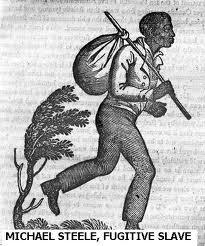Richard Berry Harrison was born on September 28, 1864 in London, Ontario to parents who escaped slavery through the Underground Railroad. Reputedly he was named for Shakespeare's play Richard III. As a child he sold newspapers on the street, often outside theaters in hopes of meeting the actors. He saved money to attend plays and often recited in church and school.
As a teenager he worked as a bellhop in Detroit, sometimes receiving theater or opera tickets as tips from guests. One guest, theater manager Chambliss Hill, arranged for him to attend the Detroit Training School of Art. After Harrison graduated in 1887 Hill tried to help him get acting roles but none were available for African Americans. In 1891 Harrison began touring the country in a one-man show, reciting poetry and Shakespearean monologues. He met poet Paul Lawrence Dunbar at the Chicago Exhibition in 1893 and the two toured together, with Harrison reading from Dunbar's book Oak and Ivy.
Harrison then worked as a railway porter and dining car steward, and contacts made on the railroad enabled him to study with the Jessie Bonstelle Stock Company in Detroit and to be hired as a reader for the Behymer Lyceum Bureau in Los Angeles. While touring with the Lyceum Bureau he began teaching elocution and drama to church groups and started a summer program in New York. He also taught courses and workshops at North Carolina A&T, Branch Normal College (now University of Arkansas at Pine Bluff), and Flipper-Key College in Oklahoma. In 1922 Harrison started a summer drama program for teachers at NCA&T, spending his winters teaching, directing, and speaking for the Greater New York Federation of Churches.
In 1930 Harrison was cast as The Lord in Marc Connelly's Pulitzer Prize-winning play The Green Pastures, although at first he was reluctant to take the part, saying the play sounded like "Uncle Tom in Heaven". It ran on Broadway for 16 months, and Harrison toured for another five years, with a total of 1657 performances. He became well known throughout the country, and received the NAACP's Spingarn Medal in 1930 for his performance and for his earlier work on stage and teaching. On his 70th birthday in 1934 he was awarded an honorary MA from Howard University and honorary PhD's from NCA&T and Lincoln University. He appeared on the cover of Time magazine one week before he died on March 14, 1935 at the age of 70.
"Richard B. Harrison still draws out of us a reverence and wonder that we do not often feel toward mortal men; and as long as he walks the earth like a natural man but with a serenity that now distinguishes him from his fellows, sheer goodness will continue to seem like a miracle. What moves us to tears in the theatre is the sight of that kindly, gentle old man and the sound of his resonant voice. The Green Pastures has enriched him. His performance has grown in simplicity and warmth of his spirit." ~ Brooks Atkinson, New York Times









































